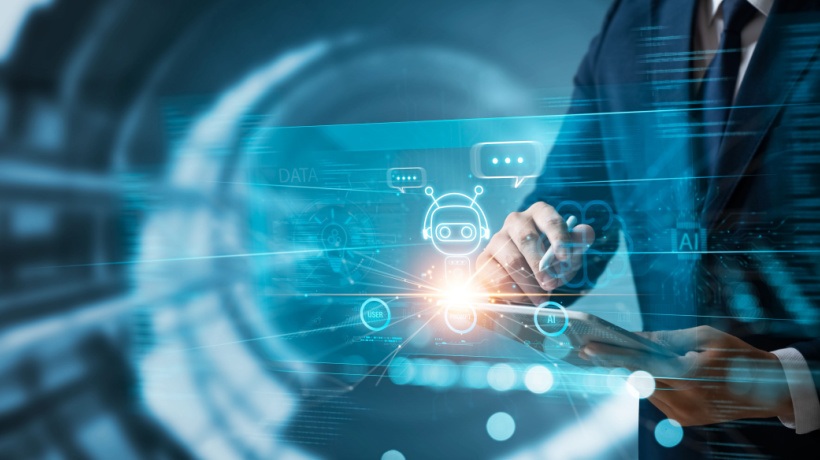AI Chatbots And Their Impact On Learning
Business is faster than ever, and employees must continuously adapt their skills. Yet traditional Learning Management Systems (LMSs) often fall short, with outdated content disconnected from employees' daily work. AI chatbots have emerged as a powerful solution that allows employees on-demand, natural language access to learning recommendations, resources, and support. According to a McKinsey study, chatbots could have a $140 billion annual impact on workplace productivity.
What Are AI Chatbots?
AI chatbots are software programs that use Natural Language Processing (NLP) to communicate with users via text or voice interactions. They employ Machine Learning algorithms to understand questions and provide helpful answers without human involvement. According to a 2021 survey by IBM, over 33% of organizations already utilize AI chatbots, with deployment expected to grow by over 160% in the next 2 years.
AI chatbots deployed through messaging apps or internal platforms use Natural Language Processing to understand questions posed in everyday language. According to Gartner, "By 2020, we'll chat with chatbots more than we do with our spouses." Companies are leveraging this technology to make learning accessible. As per a study by IBM, 67% of education happens while working and is unplanned. Chatbots allow employees to get quick answers exactly when required.
For example, KPMG uses an AI chatbot nicknamed "Gladys" to handle over 1.2 million employee queries annually. It provides on-demand, bite-sized, personalized learning nuggets rather than expecting employees to take traditional multi-hour courses. Over 50% of employees interact with Gladys weekly, and it continues to evolve in capabilities using Machine Learning.
Getting employees answers rapidly is crucial. A study by Marketwired found that 94% of employees report being more effective when learning needs are addressed promptly. AI chatbots can respond to employee questions instantly, 24/7. This prevents problems from being blocked while waiting for the next scheduled training. Chatbots are available on-demand for any time learning.
Alex Terry, Product Manager at Facebook AI, says, "One of the key benefits of chatbots in learning is that they make the whole experience feel more human." Research by Harvard Business Review found that 72% of people prefer learning from another person rather than searching online content themselves. AI chatbots simulate human-like conversational guidance at scale.
Beyond just answering questions, AI chatbots like Rise also curate and recommend specific learning resources tailored to the employee's needs, dramatically simplifying the search. Curated content is available right within the conversation, increasing convenience. Employees can even ask follow-up questions on the content within the chat experience.
Benefits Of On-Demand Learning
AI chatbots offer several advantages for supporting the continual learning needs of today's workforce:
- Available 24/7 to provide quick access to learning content or training advice whenever employees need it
- Respond to personalized natural language questions with recommendations tailored to the employee’s role, skillset, and knowledge gaps.
- Allow hands-free audio interactions convenient for multitasking workers on the go
- Analyze employee moods and engagement levels based on tone to improve motivation and learning outcomes.
- Track progress and suggest additional learning modules based on employee performance
- Integrate with the company LMS and other learning systems to direct users to relevant resources.
- Reduce strain on HR staff by automating repetitive learning/training questions.
Use Cases
More and more companies are adopting AI chatbots to supplement their employee Learning and Development programs:
- Accenture implemented an AI-powered chatbot on their platform to handle over 1.2 million employee queries annually and point users to appropriate learning modules.
- Starbucks uses a chatbot to engage staff in quick training sessions via text messages during gaps in work at over 15,000 stores.
- Volvo launched a chatbot with situational, conversational training simulations for technicians to gain hands-on repair knowledge rapidly.
- Unilever’s AI bot answers common employee questions on company policies, benefits, and training programs, and handles booking courses.
According to studies by IBM, employees retain information far better from chatbot learning interactions versus traditional eLearning. Interactive conversation with a chatbot keeps employees engaged and mimics human workplace communication. This results in over 85% retention compared to the 25% average from static online courses.
Conclusion
AI chatbots' conversational delivery and emotional intelligence capabilities create engaging, personalized learning experiences that adapt to changing employee needs and schedules. As AI and natural language capabilities rapidly evolve, chatbots are becoming increasingly integrated into learning. They provide on-demand, frictionless, and personalized support. While chatbots will not replace traditional learning programs entirely, they fill a massive gap by enabling continuous learning and quick access to answers. With benefits like increased retention, productivity, and convenience, chatbots are becoming a leading pillar for supporting the on-demand learning needs of today's dynamic workforces.

